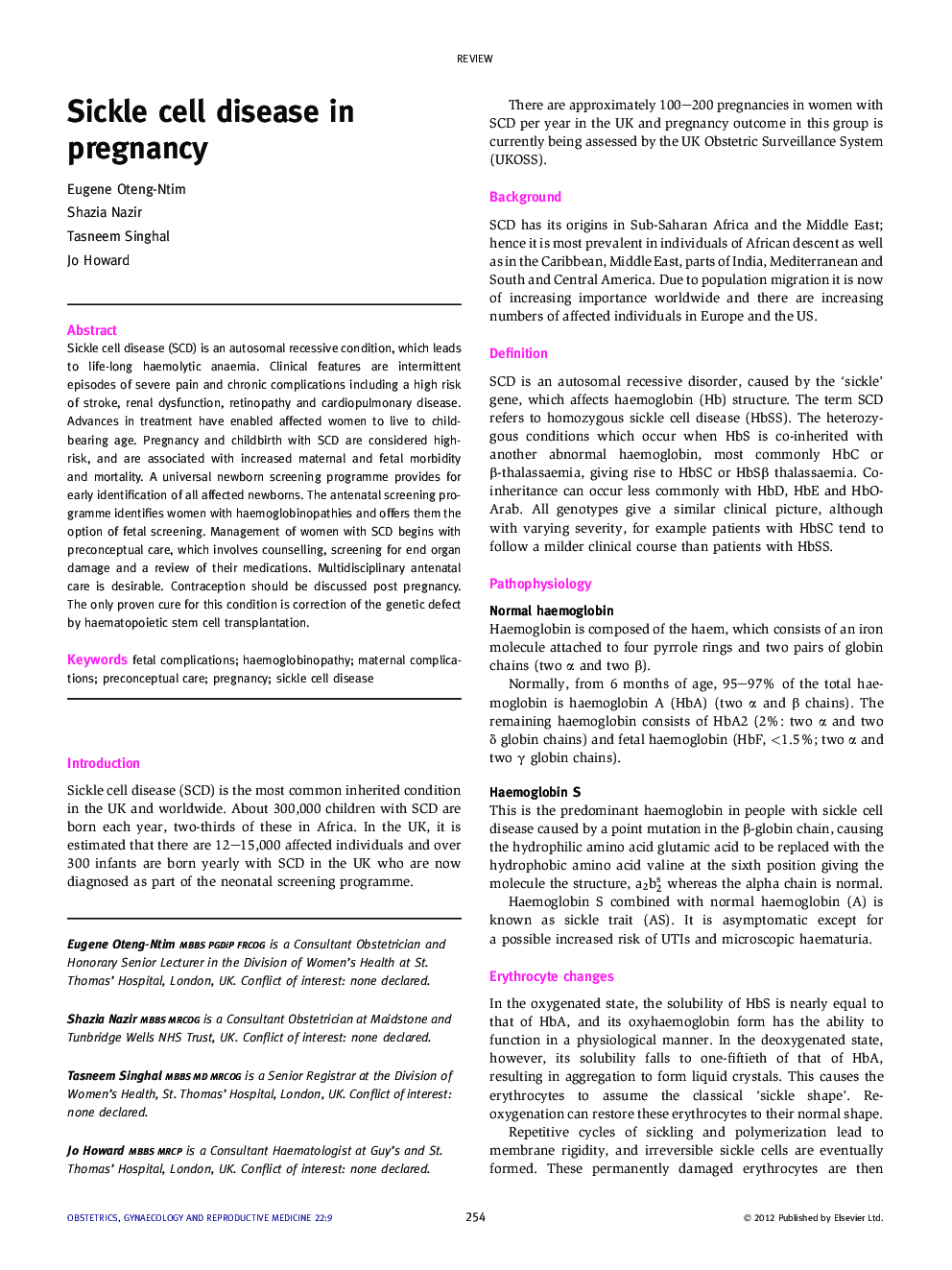| Article ID | Journal | Published Year | Pages | File Type |
|---|---|---|---|---|
| 3967020 | Obstetrics, Gynaecology & Reproductive Medicine | 2012 | 10 Pages |
Sickle cell disease (SCD) is an autosomal recessive condition, which leads to life-long haemolytic anaemia. Clinical features are intermittent episodes of severe pain and chronic complications including a high risk of stroke, renal dysfunction, retinopathy and cardiopulmonary disease. Advances in treatment have enabled affected women to live to childbearing age. Pregnancy and childbirth with SCD are considered high-risk, and are associated with increased maternal and fetal morbidity and mortality. A universal newborn screening programme provides for early identification of all affected newborns. The antenatal screening programme identifies women with haemoglobinopathies and offers them the option of fetal screening. Management of women with SCD begins with preconceptual care, which involves counselling, screening for end organ damage and a review of their medications. Multidisciplinary antenatal care is desirable. Contraception should be discussed post pregnancy. The only proven cure for this condition is correction of the genetic defect by haematopoietic stem cell transplantation.
